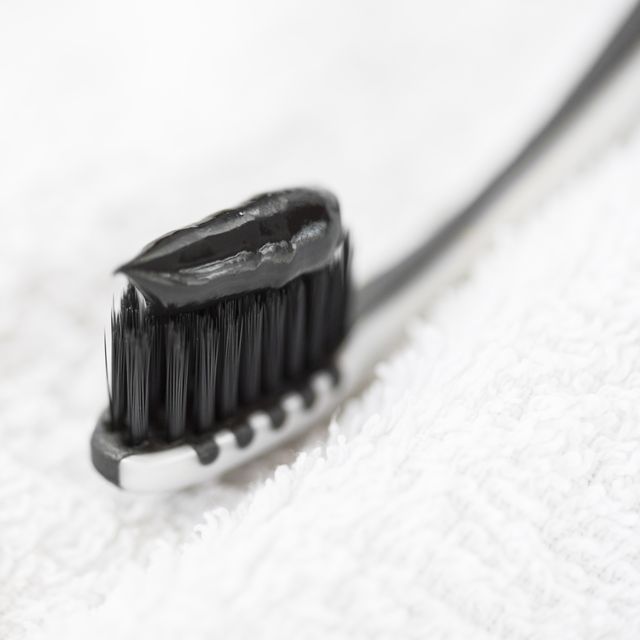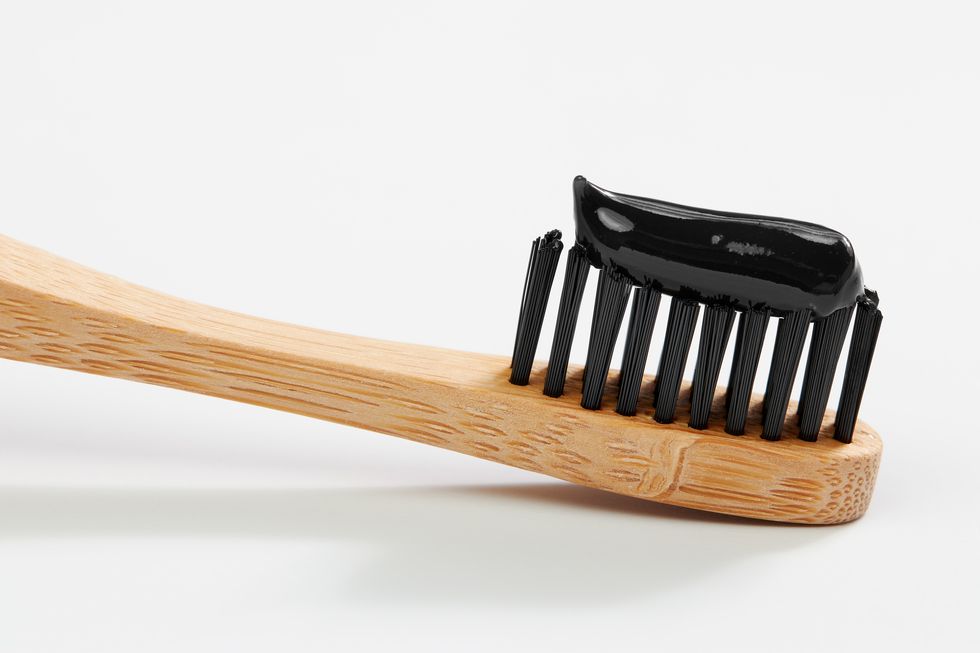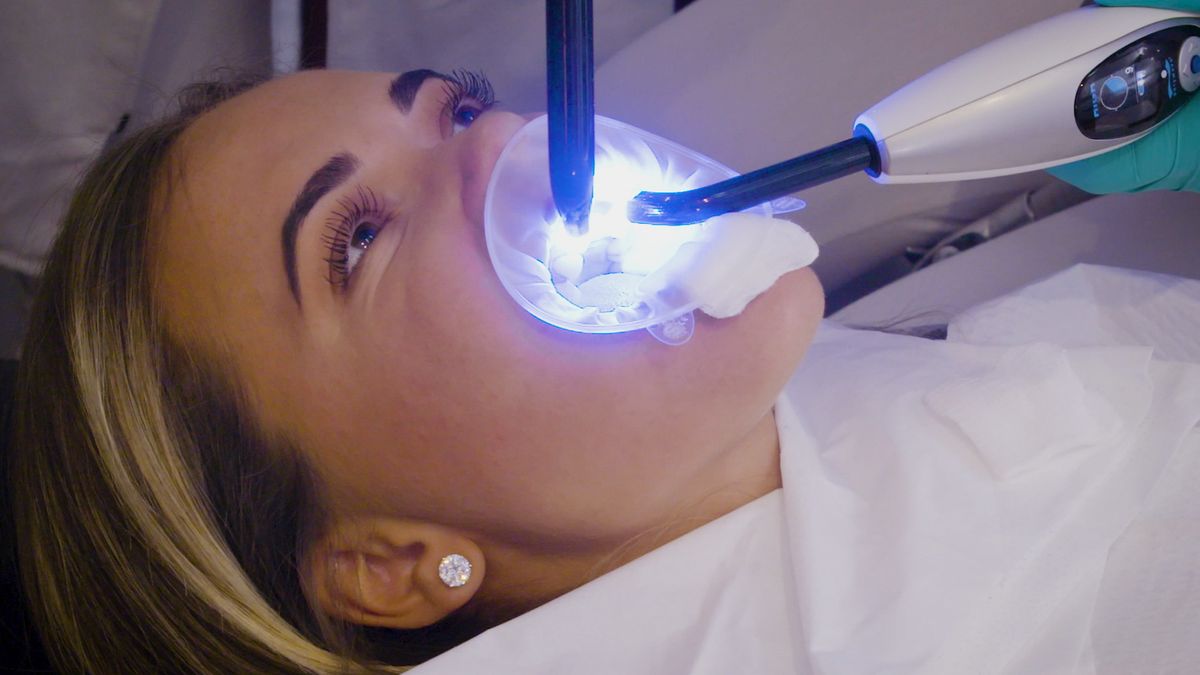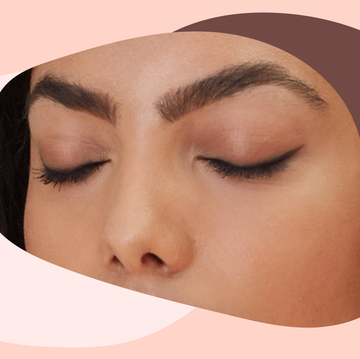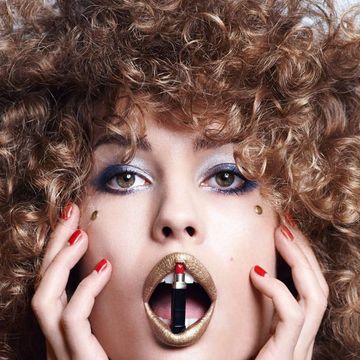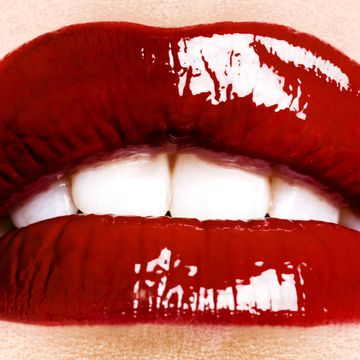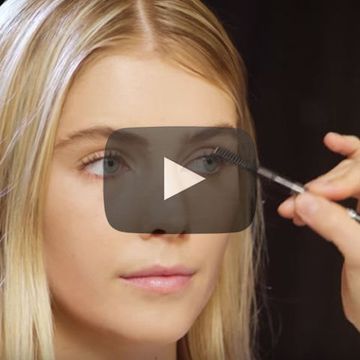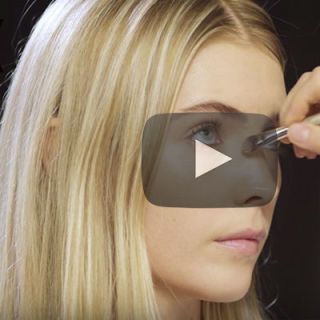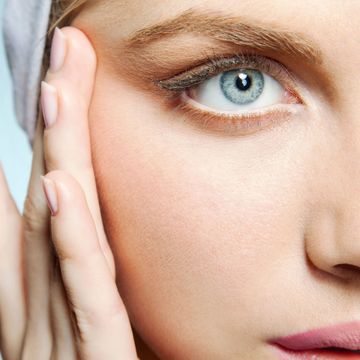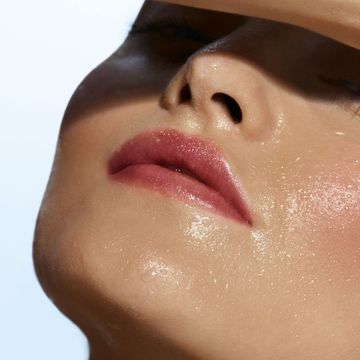Charcoal is the CBD of the oral care industry—it’s suddenly everywhere and in everything. Kendall Jenner is even hawking a charcoal-based tooth brand called Moon on her Instagram. Fans of charcoal-infused toothpaste claim it whitens teeth and freshens breath better than a dollop of any other toothpaste on the drugstore shelves, and nowadays you can find the black stuff (in its activated persona, not the briquettes used for cookouts) in everything from supplement pills to face masks. But new studies have called into question whether charcoal is actually doing more harm than good when it comes to your teeth. Here's everything you need to know about the charcoal toothpaste trend.
What Is Activated Charcoal?
Commonly found in water filters, activated charcoal is essentially a form of carbon that’s been treated to make the surface of its particles porous. All of those little nooks and crannies act like magnets for other particles (like the aforementioned dirt and oil) which it absorbs, allowing all of those unwelcome substances to be swept away when the charcoal is washed off.
"Activated charcoal toothpastes are a rebirth of ancient medicine techniques. In theory, it binds to everything in its path—stains, tartar, bacteria, viruses, and maybe even your tonsils,” explains cosmetic dentist Peter Auster. Charcoal is so powerful that it's commonly used in hospitals and emergency rooms to treat patients who are suffering from poisoning or a drug overdose.
Is Charcoal Toothpaste Safe?
A review in the British Dental Journal from early 2019 found that charcoal provides little protection against tooth decay, and there is limited scientific evidence to support the other health claims. In fact, adding powdered charcoal to toothpaste can actually make things worse. "When used too often in people with fillings, it can get into them and become difficult to get out," Dr. Joseph Greenwall-Cohen, co-author of the study from the University of Manchester Dental School, told the BBC. "Charcoal particles can also get caught up in the gums and irritate them."
There are also concerns about the abrasiveness of charcoal, which some say could damage enamel if used regularly, as well as charcoal’s tendency to absorb all sorts of things it comes into contact with, including good things like medications. Others argue that charcoal isn’t specifically bad for teeth, it simply won’t do much for your smile in the longterm since the active ingredient isn't in contact with the tooth surface for enough time to have a meaningful whitening effect. Lituchy advises erring on the side of caution if you're using a charcoal-infused paste and brushing very gently to avoid wearing down the surface enamel, which can make teeth more prone to staining in the long run.
The aforementioned review also pointed out that many charcoal-infused and natural toothpastes are formulated without fluoride, which dentists strongly recommend for preventing tooth decay. (Some studies have suggested a topical application of fluoride may be ultimately more effective than ingesting it through drinking water.) However, if you live in an area with fluoride in your drinking water and sit in a dentist’s chair once or twice a year, you’d likely be fine brushing with a non-fluoridated natural toothpaste. “Activated charcoal can be used as a supplement to brushing with regular toothpaste for people who are seeking a whiter smile, but it cannot be used in place of it,” says Lituchy. “Regular toothpaste gives us the fluoride we need to fight dental decay so it’s necessary to keep it as part of a daily regimen.”
Does Charcoal Whiten Teeth?
There's a difference between removing surface stains and whitening. Surface stains, also known as extrinsic stains, come from the usual suspects: coffee, red wine, tobacco, and dark colored foods and drinks. They live on the enamel layer and can generally be removed with toothpastes or surface whitening treatments. Deeper, intrinsic stains are dark coloring that comes from within the tooth, sometimes as a result of trauma, weak enamel, certain types of medication, and even overuse of fluoride. Think of these as the underlying color of your teeth; no matter how dedicated you are to whitening the surface, a major lightening of tooth color can only come from bleaching treatments that penetrate below the outer surface of teeth.
“I recommend a charcoal toothpaste to remove surface stains but not to whiten teeth,” says cosmetic dentist Gregg Lituchy, adding, “It is difficult to actually whiten a tooth with any toothpaste, but those with charcoal do remove surface stains effectively.” All of which is to say that a brush with activated charcoal can definitely go to town on the signs of your coldbrew habit, but it will never equal what an in-office whitening treatment can do.
What's The Deal With Detoxing?
As for those claims of “detoxifying” the mouth, while charcoal can lift away plaque and food particles that lead to bad breath, the effect won’t be much more dramatic than what you’d get with any other toothpaste. Unlike your liver and kidneys, the teeth and gums don’t perform a detoxifying function of the body, and since so-called toxins aren’t generally hanging out in your mouth anyway, there’s not much point in using your tooth-cleaning to purge them.
As for those concerned about charcoal absorbing medications, the good news is that charcoal really only performs any significant degree of absorption when it comes into prolonged contact with medications in the digestive tract. Provided you’re rinsing out your charcoal tooth treatment rather than swallowing it, there’s very little chance of the activated charcoal on your teeth effecting your prescriptions.
The bottom line:
